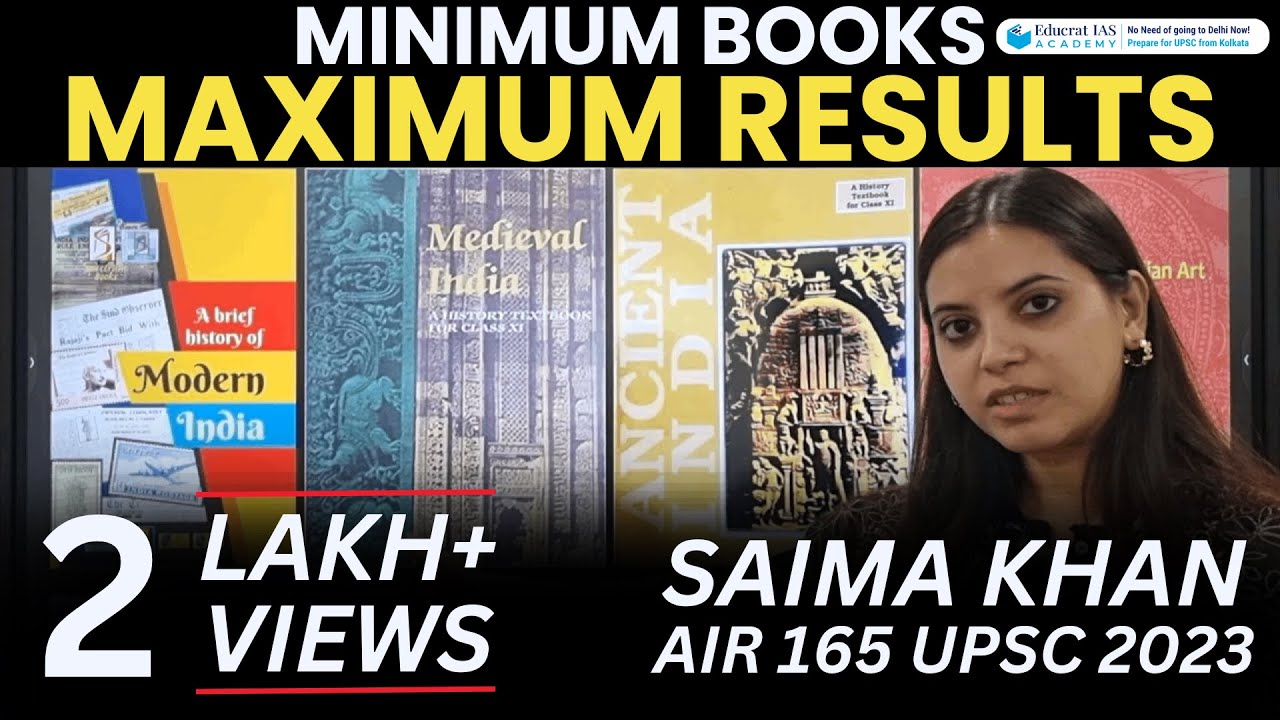L1/P1: Economy Overview, How to prepare it for UPSC
Summary
TLDRThe speaker outlines a comprehensive strategy for preparing for the UPSC Civil Services exam, focusing on the Economy. They emphasize the importance of understanding Micro and Macro Economics, the Indian Economy, and Monetary Policy. The lecture covers topics like banking sector evolution, financial inclusion, and the impact of policies like Liberalization, Privatization, and Globalization. The speaker also advises on study materials, suggesting a selective approach to reading and the importance of keeping up with current affairs, particularly in banking and finance, for both preliminary and main examinations.
Takeaways
- 📚 The lecture focuses on preparing for the Civil Services exam, specifically the Economy section, including Banking Sector and Monetary Policy.
- 🏛️ The first pillar of preparation is Basic Microeconomics, Macroeconomics, and the Indian Economy, which are essential for self-study.
- 📈 The lecture emphasizes the importance of understanding various economic systems like Mixed, Socialist, and Free Market economies, and their impact on the Indian economy.
- 📉 The discussion covers the economic reforms post-1991, including Liberalization, Privatization, and Globalization, and their effects on the Indian economy.
- 🏦 The Banking and Finance sector is a significant part of the lecture, including an in-depth look at Monetary Policy and the evolution of the Banking sector in India.
- 💼 The lecture suggests a strategic approach to studying, focusing on selected topics and concepts, rather than exhaustive reading of all materials.
- 📊 There's a mention of the importance of understanding technical terms and concepts related to GDP, National Income, and Budget without getting into complex calculations.
- 🌐 The lecture also touches on International Economy, including Balance of Payments, Current Account Deficit, and Capital Account Convertibility.
- 📝 The speaker advises on the use of resources like 'India Year Book' and economic surveys for current affairs and exam preparation.
- 📑 The lecture concludes with advice on how to approach different exams, emphasizing the need to focus on selected topics and current affairs related to the economy and banking sector.
Q & A
What are the two main topics discussed in the lecture for UPSC Civil Services preparation?
-The two main topics discussed are the preparation for the Economy section and an in-depth look into the Banking sector, including Monetary Policy.
What is the first pillar of Economy preparation for UPSC Civil Services?
-The first pillar of Economy preparation is 'Basic of Micro Economics, Macro Economics, and Indian Economy', which includes understanding various types of economies like mixed, socialist, and free market economies.
What are the key topics to focus on from Class 11 NCERT for Economy preparation?
-Key topics from Class 11 NCERT include understanding the types of economies, the impact of license raj and inspector raj on the Indian economy, and the effects of the 1991 balance of payment crisis.
Why is it recommended to download the lectures from the speaker's site for UPSC preparation?
-Lectures are recommended to be downloaded from the speaker's site because they cover additional topics and provide a comprehensive structure for self-study, including links to download the lectures in the download section of the site.
What is the significance of 'Selected Topics for ML, Marginal Rate of Substitution' in Micro Economics for UPSC exams?
-These topics are significant because they are frequently asked in the combined defense services and sometimes in the UPSC mains exam, even though they are not asked regularly.
How should one approach the study of Banking and Finance sector for the UPSC exam?
-One should start with an understanding of Monetary Policy, then move on to the evolution of the banking sector, including nationalization, Narasimham Committee, and the latest developments like the introduction of small banks and payment banks.
What are the key aspects of Fiscal Policy discussed in the lecture?
-Key aspects include types of budgets, capital and revenue parts, direct and indirect taxes, subsidies, and different types of deficits like primary deficit, revenue deficit, fiscal deficit, and their implications.
Why is it important to understand International Economy for the UPSC exam?
-International Economy is important as it covers crucial topics like Balance of Payments, Current Account Deficit, Capital Account Convertibility, and the role of international bodies like WTO, which are significant for both prelims and mains exams.
What are the seven pillars of Economy that should be focused on for UPSC preparation?
-The seven pillars include Micro Economics, Macro Economics, Banking and Finance Sector, Fiscal Policy, International Economy, Sectors of Economy like Agriculture, Industry, and Services, and Human Resource Development.
How should one prepare for the Economic Survey and Budget announcements for the UPSC exam?
-One should download the Economic Survey and Budget Speech from the Finance Ministry's website, review the schemes and their financial allocations, and understand the implications and features of new policies and reforms.
What is the advice for candidates preparing for both Prelims and Mains exams of UPSC?
-Candidates should focus on selected topics and concepts, understand the definitions and principles, and not get into the technical details. They should also follow the news and updates from reliable sources like 'The Hindu' and 'Indian Express'.
Outlines

此内容仅限付费用户访问。 请升级后访问。
立即升级Mindmap

此内容仅限付费用户访问。 请升级后访问。
立即升级Keywords

此内容仅限付费用户访问。 请升级后访问。
立即升级Highlights

此内容仅限付费用户访问。 请升级后访问。
立即升级Transcripts

此内容仅限付费用户访问。 请升级后访问。
立即升级浏览更多相关视频

SELF STUDY routine STEP BY STEP | How to SOLVE SCANNERS, do Writing Practice and READ MODULES ✅

Strategy for UPSC 2025 | 12 months Plan for UPSC CSE 2025 with Daily targets

कौन से Subject से UPSC में First Attempt में Selection होता है? By Sachin Jain Sir IRS 2016

UPSC 2026 Strategy | IAS Exam 21 Months Plan

MUST READ BOOKLIST & RESOURCES for UPSC by AIR 165 Saima Khan, Topper Strategy | Educrat IAS Kolkata

Important NCERTs for UPSC CSE | NCERT Booklist for IAS Exam
5.0 / 5 (0 votes)
